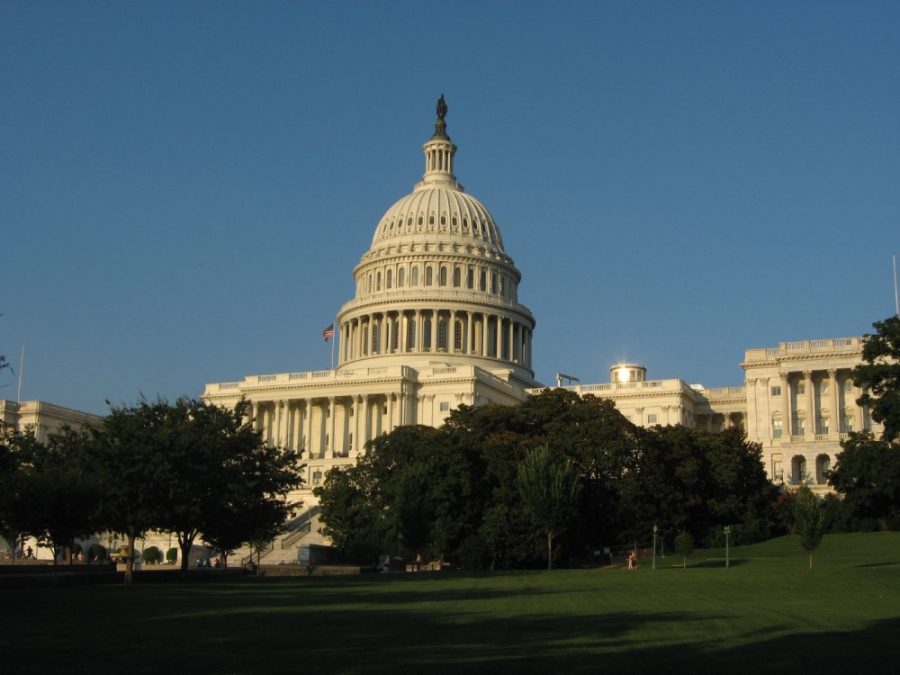The American government has become synonymous with ineffectual gridlock at the taxpayers’ expense. The vision of countless party hacks sacrificing their constituents’ interests for another term back in Washington dominates the American psyche, and not unjustly.
From complaints of laziness to accusations of sexual harassment hounding at least four lawmakers, it’s no mystery that the United States Congress is at a staggering 17% approval rating cq, a number it has been hovering around since it reached its lowest rating recorded in 2014 at only 9 percent.
Nothing has been so associated with the failures of Congress as the implementation of a filibuster, where the Senate votes to decide not to take a vote on the issue at hand. Just thinking about these suit-and-tie politicians showing up for work three days a week, cq deciding to ignore the bills before them, and then going home to their $174,000-a-year salary, cq is enough to get the blood boiling.
But what exactly is a filibuster, and what would the Founding Fathers think of it? The filibuster is a Senate procedure where an issue would be raised, a speaker would share their opinion on the bill… and then simply never yield their time. This would continue until the Senate would enter recess or decide to rest the bill. This is because the Senate guarantees unlimited time for its members to speak on a subject, unlike the House, which had to establish rules cq on discussion as more and more members were added to the 435-seat institution.
The only way to stop a filibuster would be to call for cloture, which would then limit the amount of time dedicated for discussion and push the bill to the floor to be voted on. The only catch is 60 votes are required for a cloture to pass, meaning that unless your party controls almost two-thirds of the chamber, you are going to have to get someone across the aisle to jump ship and support your cause.
RELATED: An election reflection
So what would the Founding Fathers think? The Constitution is almost entirely silent on the issue and instead allows the two Houses of Congress to decide rules on conduct for themselves, but even filibuster opponent William Blake cq wrote that the inclusion of super majorities to override vetoes, impeach the President and alter the Constitution all point to the Framers wanting to ensure that the minority could not be unduly attacked by the majority.
In the past hundred years, the use of the filibuster has skyrocketed to unimaginable heights, from as low as only two cloture votes in 1917 to as many as 252 in 2013 cq. In 2013, Democrats finally got tired of Republican roadblocking and went “nuclear,” a Senate term for getting rid of that 60-seat threshold that stood in the way of most issues, and instead began approving government appointments with the simple 51-vote rule instead.
And in 2017, Republicans invoked it themselves to push Supreme Court then-nominee Neil Gorsuch past Democratic opposition, showing how the previously unthinkable has become just another political tool to be played with.
Interestingly, the filibuster became more and more commonplace as it was made less powerful, as it was in the 1970s, when the rules for stopping a filibuster changed from needing 67 votes to only 60.
However it was not until the final year of President George W. Bush’s administration and the election of President Obama that the filibuster became a daily weapon of choice, with motions filed on cloture votes more than doubling from 68 in 2005-2006 to 139 in 2007-2008.
RELATED: Reflections on recent gubernatorial elections
But what Republicans found out in 2008 and Democrats are finding out now is that the filibuster is the friend of the down-and-out. While filibustering may seem counterintuitive and even lazy, it actually encourages discussion and bipartisanship, as the only way to make sure the government keeps running and issues are addressed is to cross the aisle and talk to the opposition.
Even if your party wins 51 percent of the election, there are still 49 percent of Americans who disagree with your platform and have genuine concerns for the maintenance of the nation. Should their concerns be ignored just because they could not win two more seats in the Senate?
Chuck Schumer publicly stated that he regretted “going nuclear” and eliminating the 60 vote requirement on appointments, and Mitch McConnell called the nuclear option a “power grab” back in 2013.
Going even further, McConnell cq was quoted as saying to then-majority leader Harry Reid and Schumer, “I say to my friends on the other side of the aisle, you’ll regret this, and you may regret it a lot sooner than you think.”
The greatest issue now is not that filibuster exists, it’s that politicians are acting as if it is a weapon of mass destruction rather than communication.
Senators taking advantage of rule changes and abusing rights to stop bipartisanship is a great challenge to our republic’s ability to act in the face of this divisive time in our history.
Alec Scott is a Sophomore Political Science and German Studies Major who volunteered for the 2014 Ron Barber Congressional Campaign. Follow Daily Wildcat on Twitter.









